
Mateo Gil’s Blackthorn is not only one of the year’s biggest and best surprises, but it’s the most beautifully photographed film I’ve seen in some considerable time. It was also a surprise, because—on the surface—its premise wasn’t that appealing. I wasn’t jazzed about the prospect of a movie that works on the premise of what if Butch Cassidy didn’t die in that shoot-out with the Bolivian army in 1908. What if instead Butch lived on to early old age as a farmer and horse-breeder in the backwaters of Bolivia? Turns out that the idea—as dealt with by the film—is actually a good one. Maybe even a great one.
Sam Shepard stars as James Blackthorn—the former Butch Cassidy—a man who has decided that it’s time to go home to America. He wants to see his “nephew,” the ostensible son of the Sundance Kid and Etta (played in flashbacks by Padriac Delaney and Dominque McElligott), who in reality might just as likely be Butch’s son. (The exact nature of the three’s domestic arrangement is left to us to ponder.) To put these plans into action, he sells his horses and closes his bank account—much to the consternation of his banker who asks if the bank has done something wrong. To this Butch replies, “Well, you know, there is just one thing—I can’t remember ever being so well received in a bank before.”
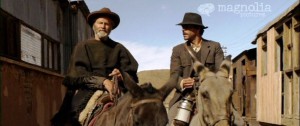
Things, however, don’t go quite according to plan. Butch loses his horse—and the money on it—when he’s ambushed by man-on-the-run Eduardo Apodaca (Eduardo Noriega, Transsiberian). But Eduardo has a story—and a plan to cut Butch in on $50,000 he stole from a rich mine owner—if Butch will help him recover the money and get away from the vengeful man from whom he stole the money. So, rather than go home to die, Butch finds himself embroiled in one further adventure. What he hasn’t reckoned on is that the morals—even his kind of morals—aren’t the same in 1927 as they were in 1908. He’s a man out of his time, and things may not be quite as they seem. But what he sees—implied, but never stated—is Eduardo as a kind of surrogate Sundance.
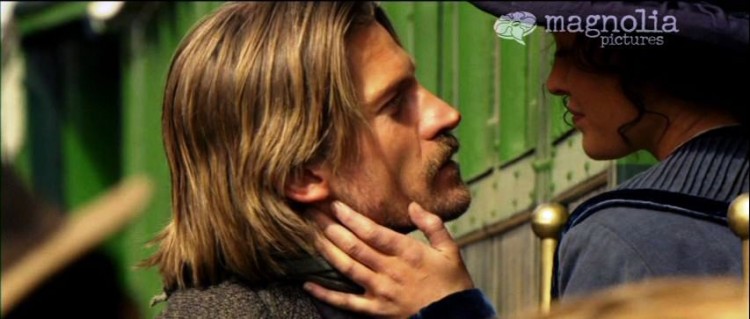
There’s much more to the story—and even more to the emotional resonance of it all—than that much of the plot conveys. But it would do the film a disservice to give more than that away. Much of the way in which we come to understand Butch/Blackthorn is conveyed in flashback where Butch is played by TV actor Nikolaj Coster-Waldau (who, it’s worth noting, credibly conveys the man who might age into Blackthorn). At first, the flashbacks seem a kind of unnecessary addition, but as the film progresses they become an integral part of the story—a necessary device for our understanding of Butch and what happens.
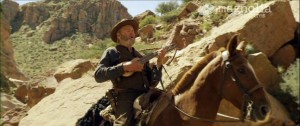
It can be said—and has been said—that the film belongs to Shepard. He gives a wonderfully modulated performance. He’s at once worldly wise, cynical, slyly amused by life, but also a somewhat naïve sentimentalist, whose memories are more real to him than reality—and those memories are what drives his performance. Yes, it’s a treat to see him attempt to sum himself up by his blusteringly defiant rendition of “Sam Hall” as he rides along the mountain trails of Bolivia. But it would be a mistake to overlook the other performers, especially Noriega and Stephen Rea as the retired—and tired—Pinkerton man who never believed Cassidy was dead. There’s not a false note from any of the performers.
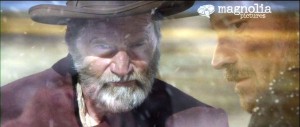
In some ways, yes, this is a revisionist Western—a twilight work—but it’s by no means a deconstruction. Blackthorn may tell us what might have happened after that freeze-frame that ends Butch Cassidy and the Sundance Kid (1969), and it may do so in grittier—or at least earthier—tones, but it doesn’t set out to debunk the myth of it all. If anything, it expands and enlarges upon the myth—and in so doing becomes one of the best and most satisfying films of the year. It might almost be this year’s True Grit. Rated R for violence and language.



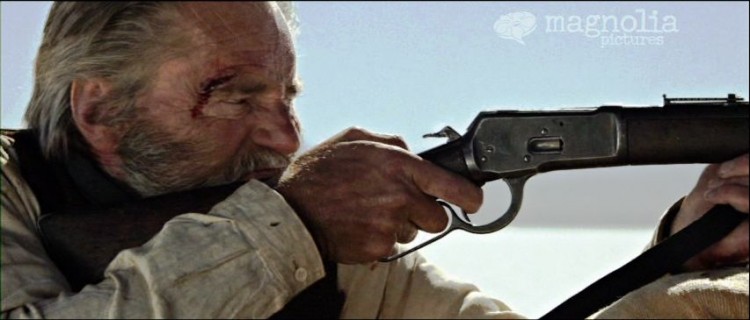
I’ve always believed there aren’t really that many good Westerns (even if it’s in Bolivia, it’s still a Western), so it’s good to read about this film. I’ll add it to my films-to-see list.
It’s a funny thing — and Justin pointed this out again yesterday — that I think I don’t like westerns much, but with the exception of American Outlaws, I have liked every western I’ve reviewed in my tenure here. Some a lot more than others, of course.
There are two moments in a “man’s” life, leaving home and coming home, all else is just between”
The Salt Flats footage among the most surreal I have seen in a while.
A classic for sure
One of my favorite movies all year — brilliant script, breathless cinematagraphy and unforgettable performances from Sam Shepard and Stephen Rea — and it’s closed already?! ARGHGHGHGH!
Marcianne Miller
This is one that I really thought was dropped prematurely, but it wasn’t my call.
*presently kicking self*
I can perhaps help you. (No, not in kicking yourself.)
Ooo, I like the sound of that. What role can I play to bolster up that “perhaps”? Thanks!
Let me know when you’re coming to the AFS or THPS again.